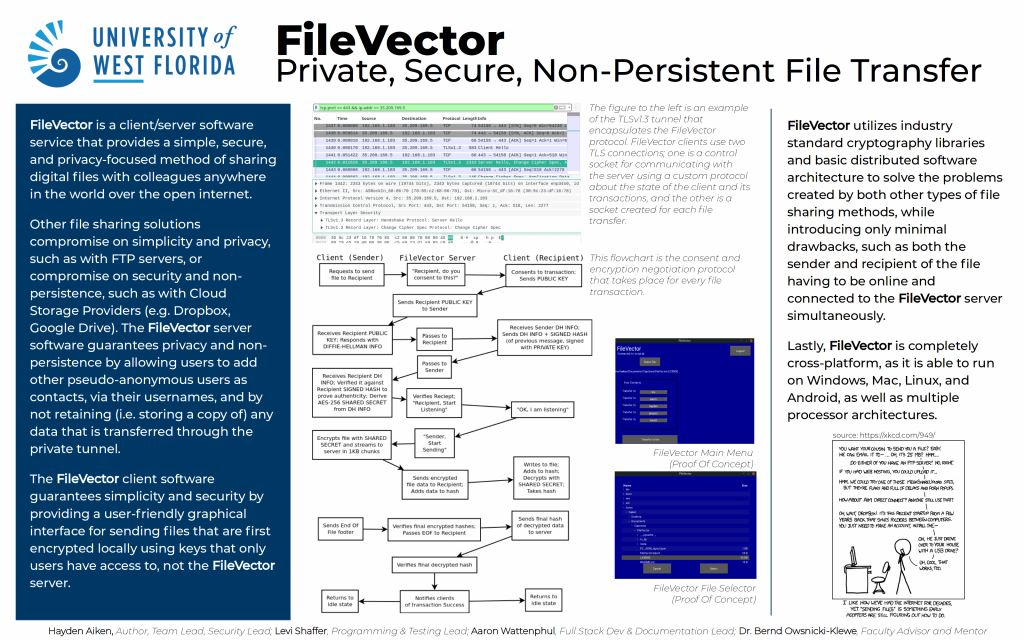Secure, Private, and Non-Persistent File Transfer.
FileVector is a client/server software service that provides a simple, secure, and privacy- focused method of sharing digital files with colleagues anywhere in the world over the open internet. Other file sharing solutions compromise on simplicity and privacy, such as with FTP servers, or compromise on security and non-persistence, such as with Cloud Storage Providers (e.g. Dropbox, Google Drive).
The FileVector server software guarantees privacy and non-persistence by allowing users to add other pseudo-anonymous users as contacts via their usernames, and by not retaining (i.e. storing a copy of) any data that are transferred through the private tunnel. The FileVector client software guarantees simplicity and security by providing a user-friendly graphical interface for sending files that are first encrypted locally using keys that only users have access to, not the FileVector server.
FileVector utilizes industry standard cryptography libraries and basic distributed software architecture to solve the problems created by both other types of file sharing methods, while introducing only minimal drawbacks, such as both the sender and recipient of the file having to be online and connected to the FileVector server simultaneously. Lastly, upon full release, FileVector will be completely cross-platform, able to run on Windows, Mac, Linux, and Android, as well as multiple processor architectures.
Below is a poster presentation for FileVector, displayed at the University of West Florida’s Spring research symposium. Note that UWF makes no claim of ownership to the intellectual property or source code of FileVector.

FileVector is currently in the design phase of a full reconstruction in a memory-safe, multi-threaded language with a more extensible frontend.
